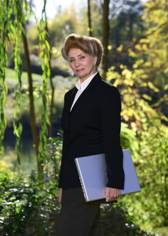Osteoporosis Not Just Disease of Elderly Says Former Olympian Keith McCormick
September 17, 2012
Osteoporosis Not Just Disease of Elderly Says Former Olympian
Iron Man Athlete Keith McCormick, DC, on Diet, Exercise and Education to Prevent Bone Density Loss
Interview with Osteoporosis Specialist Keith McCormick, DC, September 17, 2012, on Sharon Kleyne Hour Power of Water
Osteoporosis, or loss of bone density, has long been considered a disease of the elderly. According to Chiropractic Physician and Iron Man athlete Keith McCormick, osteoporosis can occur at any age and may be caused by lifestyle choices or simply by genetics. Either way, according to Dr. McCormick, bone health is critical to overall health and should never be taken for granted.

Dr. McCormick, author of The Whole Body Approach to Osteoporosis (New Harbinger Publishing, 2009), was interviewed on the Sharon Kleyne Hour Power of Water radio talk show on September 17, 2012. Podcasts may be heard on WorldTalkRadio.com, Apple iTunes Radio and Sharon Kleyne Hour.com.
Dr. McCormick explained to the host, Sharon Kleyne, that he is a former Olympic athlete who has been involved with extreme athletics for decades. At age 45, he experienced hip pain that was eventually diagnosed as osteoporosis, sometimes knows as "brittle bone disease." As a chiropractic physician, he has since done considerable research on osteoporosis and still competes in iron man competitions.
"Bones have two major functions," says Dr. McCormick, "they support the body and they are a reservoir of important nutrients, especially minerals. When people don't eat properly, the body begins drawing down this mineral reservoir at the expense of bone density."
For the first 25 years of human life, according to Dr. McCormick, the body builds bone mass. Then, from the mid-30's on, people tend to very gradually lose bone (that's why they get shorter). Certain activities in the first 20 years can influence bones as they grow (which is why Dr. McCormick doesn't recommend weight lifting or toe dancing for children).
Dr. McCormick differentiates between "osteoblastic" bones cells (that build bone) and "osteoclastic" bone cells (that tear down bone). He notes that while bone loss is often attributed to calcium deficiency, that is only a small part of the picture. Bone loss can also be related to chronic inflammation (caused by body dehydration and many other factors) and by an overly acidic inner body pH (of 7.0 or less). Your inner body should have a lightly alkaline pH (greater than 7.0).
Sharon Kleyne noted that dehydration (insufficient body water) can cause both chronic inflammation and an acidic inner body. Dehydration is usually alleviated by drinking at least eight glasses of water daily. Since most drinking water is slightly alkaline, drinking it tends to make your body less acid.
Risk factors for osteoporosis, according to Dr. McCormick, include smoking, low weight, heavy alcohol consumption and excessive use of pain medication. However, 30 to 40 percent of osteoporosis patients have no apparent risk factors. There are also no real symptoms other then a tendency towards bone fractures (which can also have other causes). The best way to diagnosis osteoporosis is to have regular bone density tests after age 40 (which consists of a panel of several tests).
Dr. McCormick explained to Sharon Kleyne that the ideal defense against osteoporosis is to eat correctly in the first place
A good bone health diet, according to Dr. McCormick, is a normally healthy, balanced diet. Milk and cheese, says Dr. McCormick, provides extra calcium but should be eaten in moderation because they are also very acidic, which is bad for bone health. In addition, cow milk can cause numerous allergies. More recommended calcium foods are fish, chicken and vegetables. Vitamin D is also important to bone health.
The best bone foods, says Dr, McCormick, are dark green leafy vegetables such as kale and chard (which are also good vision foods). Nutritional supplements are OK, but should never be a substitute for proper diet.
Sharon Kleyne's interview with Keith McCormick was part of her show's "Power of Water" theme because osteoporosis, like dry eye, is among the many diseases related to dehydration. The "osteoporosis solution," like the Dry Eye Solution®, is to drink at least eight glasses of water a day (more is you are ill or in a hot or dry environment).
The Sharon Kleyne Hour Power of Water is broadcast live on Mondays, 10 a.m., PST/PDT. The syndicated talk show is heard on Voice America/World Talk Radio, Green Talk Network and Apple iTunes. Go to www.SharonKleyneHour.com for written summaries and on-demand podcast replays.
Website: osteonaturals.com; mccormickdc.com
© 2012 Bio-Logic Aqua Research (137).
 Sharon Kleyne
Sharon Kleyne